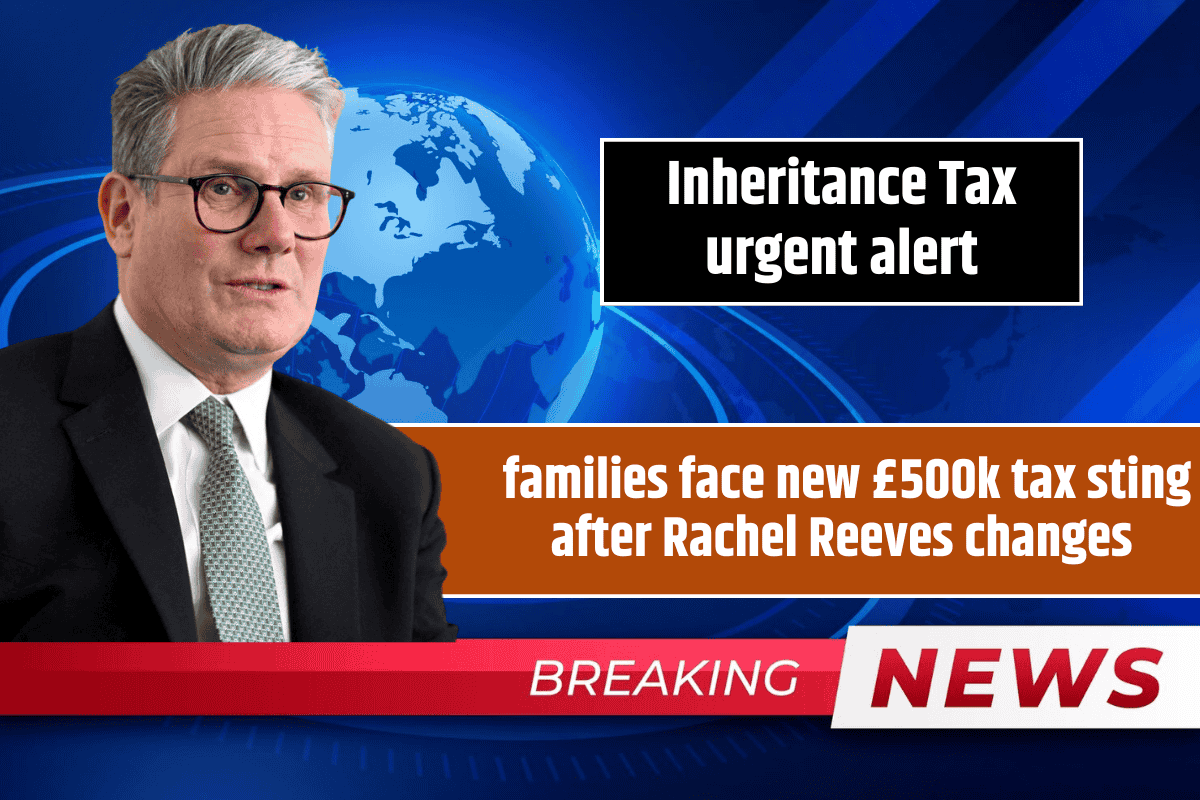Many family-run businesses and farms in the UK are now worried about huge inheritance tax bills, as Chancellor Rachel Reeves introduces new tax changes. From April 2026, changes to two major tax reliefs could mean that families may have to pay over £500,000 in taxes when passing on their businesses.
What Is Changing with Inheritance Tax?
Rachel Reeves announced in her October Budget that she will be tightening rules on two key tax breaks: Business Property Relief (BPR) and Agricultural Property Relief (APR).
Currently, these reliefs help business and farm owners reduce or avoid inheritance tax when their property or business is passed on after death. But from April 2026:
- The relief will only apply up to £1 million
- Any amount above that will be taxed at 20%
This means family-run businesses that were fully exempt before will now face a large tax bill if their estate is worth more than £1 million.
How Much Could Families Pay?
According to tax experts at Saffery, the average inheritance tax bill under these new rules could reach £547,000. Even a small shop in the South East could go over the limit due to high property values and may trigger a five-figure tax.
Zena Hanks from Saffery explained that this change will badly affect families who’ve worked hard to build businesses. She said many are now “justifiably frustrated” as they feel punished for creating jobs and contributing to the economy.
Who Will Be Affected?
These changes are expected to hit:
- Family-owned shops
- Small farms
- Family businesses across the UK
Even businesses with modest income but high-value property may fall into the tax trap.
How Much Will This Raise for the Government?
The Office for Budget Responsibility predicts this change will bring in an extra £500 million per year by 2027-28.
Also, 2,000 more estates each year will now need to pay inheritance tax, as per HM Revenue & Customs (HMRC).
Why Are People Angry?
Many feel the government is not listening to farmers and small business owners. Last week, a group of MPs asked for a delay in these new rules, pushing the date to April 2027 instead of 2026. They said there was no proper consultation, and the rules were made without explaining how they would affect people.
MP Alistair Carmichael, who leads the committee on environment and rural affairs, criticised the decision. He said it ignores farmers’ concerns, especially after months of protests where farmers drove tractors to Westminster to demand fair treatment.
This tax change is a big worry for small business and farm owners. Many feel they are being punished after years of hard work and risk-taking. While the government says the money will help the economy, families say it will hurt their ability to pass on businesses to the next generation. The debate continues, and many are hoping for a delay or full review before April 2026.
FAQs
What is changing in inheritance tax from April 2026?
From April 2026, Business Property Relief and Agricultural Property Relief will be limited to £1 million. Any amount above this will be taxed at 20%.
How much inheritance tax could families pay?
Families could face an average inheritance tax bill of £547,000 under the new rules, according to Saffery tax experts.
Who will be affected by the tax changes?
Family-run businesses, farms, and small shops—especially those with high-value property—could be affected the most.
Why are MPs asking for a delay in the new rules?
MPs argue that there was no proper consultation and that farmers and small businesses need more time to prepare for the changes.
How much money will the government make from this change?
The government expects to raise £500 million a year by 2027–28 through the new inheritance tax rules.
